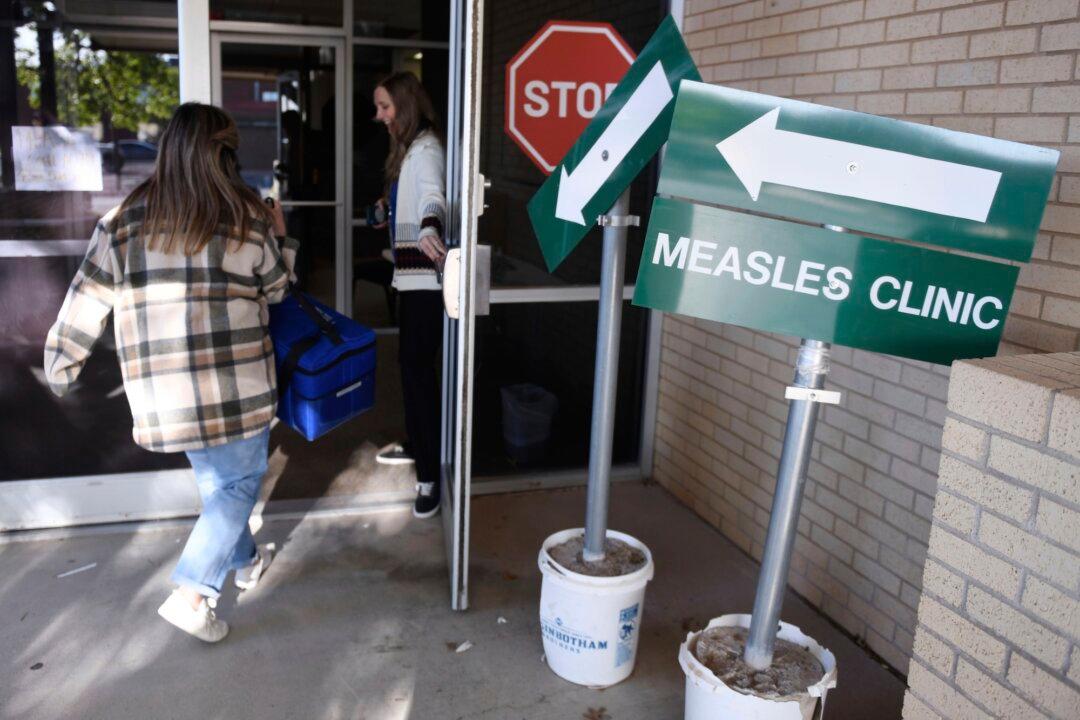The Centers for Disease Control and Prevention has issued a major update to its measles vaccination guidance, urging all Americans traveling internationally to get vaccinated—unless already immune—amid a resurgence of the disease in the United States and abroad.
“All international travelers should be fully vaccinated against measles with the measles-mumps-rubella (MMR) vaccine,” the CDC said in a May 28 update, noting that the recommendation applies to those without adequate evidence of past immunity.
The CDC defines acceptable evidence of immunity as written proof of adequate vaccination, lab-confirmed immunity or prior infection, or U.S. birth before 1957.
The agency recommends two doses of MMR vaccine—at least 28 days apart—for anyone aged 12 months or older who lacks such documentation. Infants aged 6 to 11 months are advised to get one early dose before travel, the CDC said, adding that they will still need to follow the routine U.S. vaccination schedule later.
The new travel alert marks a significant shift from previous CDC guidance, which prioritized vaccination only for those heading to outbreak-prone regions. Experts say the expanded recommendation reflects a growing risk of infection in transit—especially on airplanes and in airports.
“We’re seeing a shift from localized outbreaks to transmission in transit,” said Ashley Darcy-Mahoney, a professor at George Washington University’s nursing school.
That risk was recently illustrated in Colorado, where state health officials
linked six confirmed measles cases to a single infected passenger aboard a Turkish Airlines flight that landed at Denver International Airport on May 13. Among the infected are three Colorado residents who were on the flight, including a vaccinated adult from Arapahoe County, and two unrelated unvaccinated adults from El Paso County who were at the airport the following day and likely exposed to the virus there. A fourth case from the flight involved an out-of-state passenger.
All six individuals are recovering at home, but the outbreak prompted public health alerts and raised concerns about airborne exposure at the Denver airport. Health officials say both El Paso County residents were at the airport at about the same time on May 14 and may have contracted measles through the shared airspace.
“Getting vaccinated is the best way to protect yourself, your family, and your community,” the Colorado Department of Public Health and Environment said in a June 1
statement. “Measles is highly contagious and can lead to serious health problems—but it is a vaccine-preventable disease.”
Nationwide, the CDC
has reported 1,088 measles cases in 33 states so far this year, including three deaths. That makes 2025 the worst year for measles in the United States since 2019, a year that
saw 1,274 cases from a large outbreak in New York state and cases in 30 additional states.
Meanwhile, measles cases continue to surface. In Minnesota, officials
confirmed on June 2 that a child was infectious while visiting the Mall of America on May 24 and warned that anyone who was at the mall between 5 p.m. and 9 p.m. that day may have been exposed and should monitor themselves for symptoms. New Jersey authorities
issued a warning after a person carrying measles attended a sold-out Shakira concert at MetLife Stadium on May 15. No secondary cases have been linked to that event, but thousands of attendees were potentially exposed.
Health officials say measles spreads through coughing, sneezing, or simply breathing shared air. The virus can linger in a space for up to two hours after an infected person has left. Early symptoms include high fever, cough, runny nose, and red, watery eyes—followed by a distinctive rash that starts on the face and spreads. Complications can include pneumonia, brain swelling, and death, particularly in young children.
The Associated Press contributed to this report.
Correction: A previous version of this article omitted to note that only travelers without proven immunity are urged to get the MMR vaccine. The Epoch Times regrets the error.







